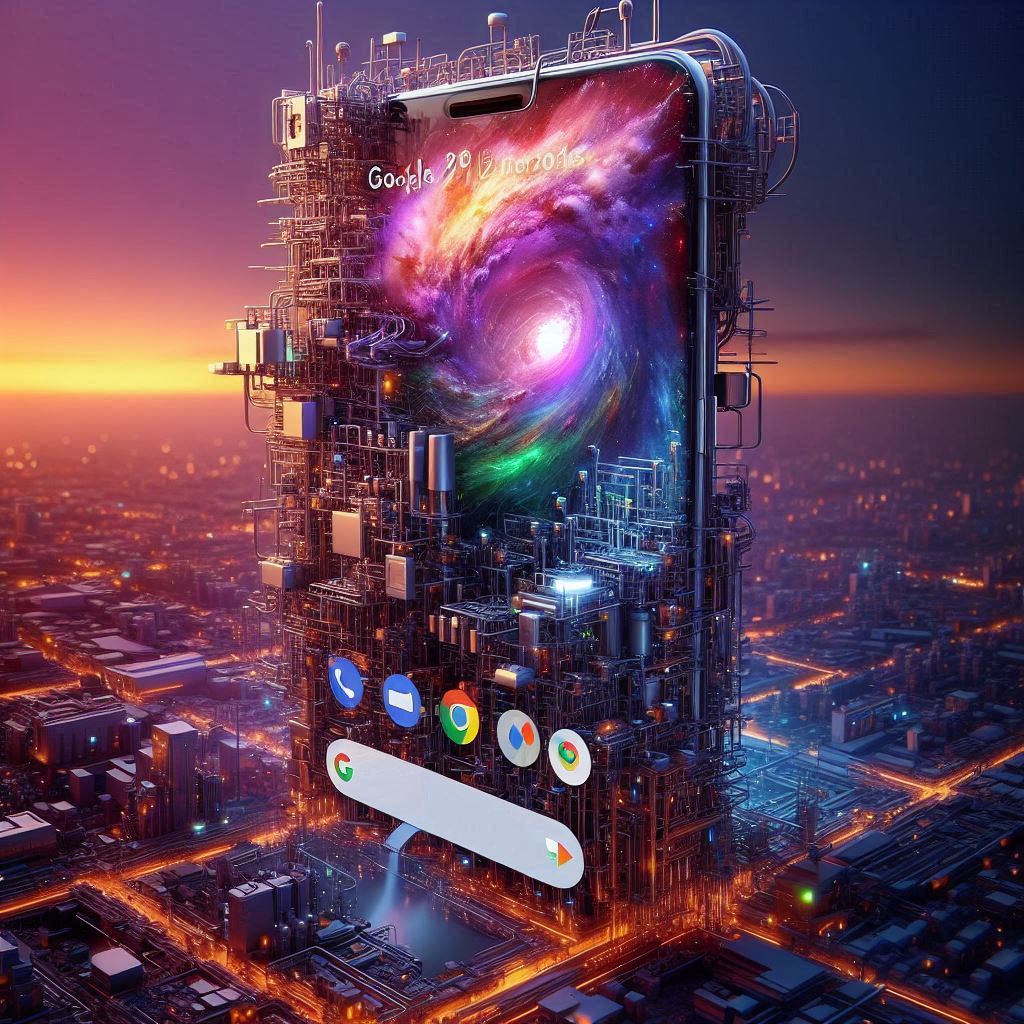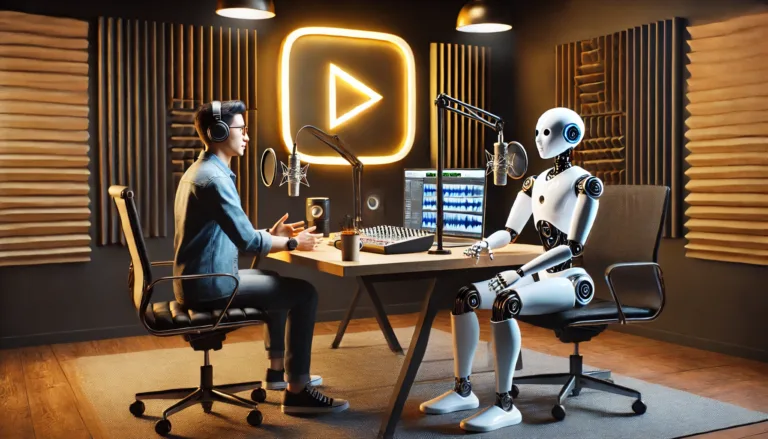The Google Pixel series has always been synonymous with cutting-edge innovation, and the newly launched Google Pixel 9 is no exception. One of the most talked-about features of this flagship device is its enhanced AI capabilities, which promise to redefine how we interact with smartphones. From intelligent photography to personalized experiences, the AI in the Pixel 9 aims to make every aspect of the device smarter, faster, and more intuitive. In this review, we’ll dive deep into the various AI-driven features of the Google Pixel 9, exploring how they enhance user experience and set this device apart from its predecessors and competitors.
1. AI-Powered Photography: Redefining Smartphone Photography
Photography has always been a hallmark of the Pixel series, and with the Pixel 9, Google takes this to the next level. The AI enhancements in the camera system are designed to help users capture the perfect shot every time, regardless of their photography skills.
a. Smart HDR+ and Computational Photography
The Pixel 9’s AI-driven camera system uses computational photography to produce images that are vivid, detailed, and well-balanced. Smart HDR+ analyzes multiple frames before and after the shutter is pressed, combining the best elements of each to produce a single image that optimizes lighting, color, and detail. This feature ensures that every shot, whether taken in broad daylight or low light, comes out perfectly balanced without the need for manual adjustments.
b. Night Sight 2.0
Night Sight has been one of the standout features of previous Pixel phones, and with the Pixel 9, Google introduces Night Sight 2.0. This upgraded version uses advanced AI algorithms to enhance low-light photography further. The AI can intelligently detect the scene and adjust the exposure, noise reduction, and detail enhancement to produce clear, sharp images even in near-total darkness. Additionally, the Pixel 9 now offers an AI-guided astrophotography mode, allowing users to capture stunning images of the night sky with minimal effort.
c. Super Res Zoom
Zooming in on a subject without losing detail has always been a challenge for smartphone cameras. The Pixel 9’s AI-driven Super Res Zoom addresses this by using machine learning algorithms to enhance zoomed-in images. The AI compensates for the loss of detail typically associated with digital zoom, resulting in clearer, sharper images even at higher zoom levels.
d. Portrait Mode with AI Bokeh
The Portrait Mode on the Pixel 9 leverages AI to create a more natural and accurate bokeh effect. The AI precisely identifies the subject in the frame and applies a realistic blur to the background, mimicking the depth of field effect seen in professional DSLR cameras. Moreover, the AI can intelligently handle complex scenarios, such as when the subject is in motion or when there are multiple subjects in the frame.
2. Google Assistant: A Smarter, More Context-Aware Assistant
The Google Assistant on the Pixel 9 is now more powerful and contextually aware than ever, thanks to the integration of advanced AI technologies.
a. Voice Recognition and Natural Language Processing
One of the significant improvements in the Google Assistant on the Pixel 9 is its enhanced voice recognition capabilities. The AI can now understand and process natural language more effectively, making conversations with the Assistant feel more fluid and natural. This is particularly useful for tasks such as setting reminders, sending texts, or controlling smart home devices, where the Assistant can now understand more complex commands and nuances in language.
b. Personalized Routines and Suggestions
The Pixel 9’s AI continuously learns from user behavior and habits, allowing the Google Assistant to offer more personalized routines and suggestions. For example, if the AI notices that you typically listen to a particular playlist during your morning workout, it will start suggesting that playlist automatically. Similarly, the Assistant can suggest reminders or calendar events based on your daily routine, helping you stay organized without needing to input everything manually.
c. Contextual Awareness
Contextual awareness is another area where the Google Assistant shines on the Pixel 9. The AI can understand the context of your requests more accurately, allowing for more efficient multitasking. For instance, if you’re watching a video on YouTube and ask the Assistant a question, it can provide answers without interrupting your video. This context-aware feature extends to various apps and services, making the Assistant more integrated into your daily smartphone usage.
3. AI-Driven Battery Management: Prolonging Battery Life
Battery life is a critical concern for smartphone users, and the Pixel 9 addresses this with AI-driven battery management features that optimize power consumption.
a. Adaptive Battery
The Adaptive Battery feature on the Pixel 9 uses AI to learn your usage patterns and prioritize battery power for the apps and services you use most frequently. By analyzing which apps are used at specific times of the day, the AI can limit background activity for less-used apps, extending the battery life significantly. Over time, as the AI learns more about your habits, it becomes more effective at managing battery power, ensuring that your phone lasts longer between charges.
b. Extreme Battery Saver Mode
In scenarios where you need your phone to last as long as possible, the Extreme Battery Saver mode comes into play. Powered by AI, this mode can predict when you’re likely to need extended battery life, such as during a long trip or when you don’t have access to a charger. The AI then limits app usage and background processes to only the essentials, effectively doubling or even tripling the battery life.
4. AI in Security: Enhancing Device Protection
Security is another area where the Google Pixel 9 leverages AI to offer robust protection against threats.
a. AI-Driven Malware Detection
The Pixel 9 includes AI-based malware detection that continuously monitors apps and processes for suspicious activity. This AI system can identify potential threats in real-time, even if the malware is new or previously unknown. By analyzing patterns of behavior rather than relying solely on signature-based detection, the AI can detect and neutralize threats before they cause any harm.
b. Enhanced Facial Recognition
The facial recognition system on the Pixel 9 is now powered by AI that improves accuracy and speed. The AI can recognize the user’s face from multiple angles and in varying lighting conditions, making it more reliable than previous versions. Moreover, the AI continuously learns and adapts to changes in the user’s appearance, such as facial hair growth or wearing glasses, ensuring that the recognition remains accurate over time.
c. AI-Powered Privacy Features
Google has also integrated AI to enhance privacy on the Pixel 9. For instance, the AI can automatically detect when you’re in a sensitive situation, such as entering passwords or accessing banking apps, and offer additional layers of security. This could include temporarily disabling screen capture or reducing the amount of information displayed on the screen, ensuring that your private data remains protected.
5. AI in User Experience: Making the Pixel 9 More Intuitive
The AI capabilities of the Pixel 9 extend beyond specific features, deeply integrating into the overall user experience to make the device more intuitive and user-friendly.
a. AI-Powered Text Prediction and Smart Replies
Typing on the Pixel 9 is now faster and more accurate thanks to AI-powered text prediction. The AI learns from your typing habits and suggests words or phrases that match your writing style. This not only speeds up typing but also reduces the likelihood of errors. Additionally, the Smart Reply feature in messaging apps uses AI to suggest quick responses based on the context of the conversation, making it easier to reply on the go.
b. Live Caption and Real-Time Translation
The Pixel 9’s AI also powers accessibility features like Live Caption and real-time translation. Live Caption automatically generates captions for any media playing on your device, which is especially useful for users who are deaf or hard of hearing. Real-time translation, on the other hand, leverages AI to translate spoken language on the fly, making it easier to communicate across language barriers. These features are not only innovative but also highlight Google’s commitment to inclusivity.
c. AI in App Suggestions and App Actions
The Pixel 9 uses AI to make your smartphone experience more personalized with App Suggestions and App Actions. Based on your usage patterns, the AI suggests apps that you might want to use at specific times of the day or in particular contexts. For instance, if you typically check social media after dinner, the Pixel 9 will suggest your favorite social media app during that time. App Actions go a step further by predicting the specific actions you’re likely to take within an app, such as starting a workout or messaging a friend, and offering shortcuts directly on your home screen.
6. AI in Connectivity: Improving Network and Device Interactions
Finally, the AI in the Pixel 9 plays a significant role in enhancing connectivity, ensuring that users enjoy a seamless and efficient experience when interacting with networks and other devices.
a. Adaptive Connectivity
The Pixel 9’s AI optimizes network connectivity by intelligently switching between Wi-Fi, 5G, and LTE depending on the quality and speed of the available networks. This ensures that you always have the best possible connection without draining your battery unnecessarily. The AI can also predict when you’re likely to need a faster connection, such as when streaming video or downloading large files, and automatically switch to a more suitable network.
b. AI-Driven Bluetooth Management
The AI also enhances Bluetooth management on the Pixel 9, making it easier to connect and interact with other devices. For example, the AI can automatically switch between audio devices depending on the context, such as connecting to your car’s Bluetooth system when you start driving or switching to your wireless earbuds when you receive a call. This seamless management ensures that you don’t have to manually switch devices or deal with connectivity issues.
Conclusion: The Future of Smartphones is AI-Driven
The Google Pixel 9 exemplifies how AI can transform the smartphone experience. From photography and security to connectivity and user experience, the AI capabilities of the Pixel 9 are designed to make your life easier, more enjoyable, and more efficient. As technology continues to evolve, it’s clear that AI will play an increasingly pivotal role in shaping the future of smartphones, and the Pixel 9 is leading the way with its innovative and intelligent features. Whether you’re a tech enthusiast, a casual user, or someone who relies heavily on their smartphone for daily tasks, the AI enhancements in the Pixel 9 are sure to impress and offer real, tangible benefits. Google’s commitment to integrating advanced AI technologies into their devices not only sets a high standard for the industry but also promises an exciting future for smartphone innovation.




